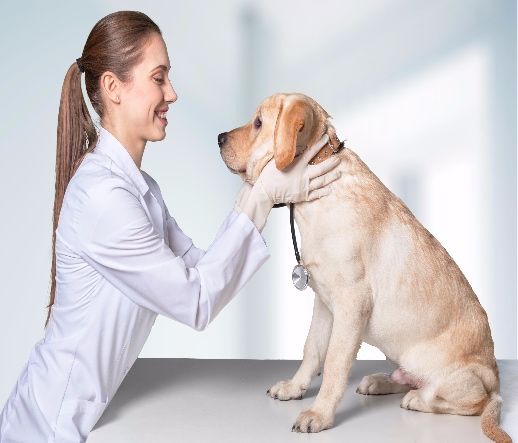Spaying or neutering are becoming more and more of a conversation as people become more aware of how many animals are euthanized each year (some studies show as many as 3-4 MILLION a year) and begin to question whether “the old way” is medically and behaviorally the best choice for their pet. Pets have become more like family and less like animals we leave outside and “care for”. We will spend approximately 75.38 BILLION dollars in 2019 on our pets compared to 45.53 Billion ten years ago and 21 Billion 20 years ago. Ask any person committed to animal rescue and they will tell you altering your pet is the only way. We, at Furry Fundamentals, do support spaying/neutering your pets. But we want to present you solid research on the benefits of spaying/neutering your dog and encourage you to do your research and have a conversation with your vet with FACTS in hand.
There are many benefits to spaying and neutering. Some of those include improved health, temperament, and reducing overpopulation and euthanasia.
Health Benefits of spaying or neutering
- Neutering your dog removes the risk of testicular cancer and some prostate problems.
- Spaying your dog helps prevent UTI and breast tumors in about 50% of dogs. This is fatal in 50% of dogs. The ASPCA acknowledges some veterinarians recommend dogs go through one heat, but studies have shown spaying before the first heat lowers the risk of UTI and breast tumors.
- According to USA Today, states with the highest rate of spay/neuter have pets that live the longest. Neutered dogs live 18% longer and spayed females live 23% longer.
Behavioral Benefits
Believe it or not, a pet’s behavior can benefit greatly from being spayed or neutered.
- Pets that are not fixed tend to roam as they are looking for a mate. It is not uncommon for pets to try and escape their yard to find a mate. This increases their risks of fatal fights and being struck by a vehicle.
- Unneutered males are more likely to lift their leg and mark their space (often including your home). Neutering can reduce this by 90%. But keep in mind, the longer you wait, the more ingrained (and harder to change) the behavior becomes.
- According to WebMD for pets, neutering can reduce aggression in male dogs.
- A dog in heat will show signs of irritability such as excessive whining, pacing, restlessness, and anxiety that a spayed female will not display.
Common Myths About Spaying & Neutering
- It causes obesity in pets
- Lack of exercise and poor diet cause obesity. There are no links direct or indirect to show spaying or neutering your pet effect its weight.
- It’s best to allow females to have one litter
- In addition to the medical risks involved in giving birth (hemorrhaging, mastitis, puppy stuck are the easy to pronounce ones!) and the increased risks mentioned above, there are the increased costs of vet care and feeding mom. Mom needs more and higher-quality food and you should never breed your dog without regular conversations and visits to your vet.
- You have to consider the temperament of who you would choose your dog to breed with. It’s not as simple as finding a friend’s dog. There are personality traits such as guarding and aggression and medical traits such as dysplasia and heart disease that are hereditary.
- I can find good homes for the offspring
- 3.3 MILLION dogs are surrendered to a shelter in one year with only 1.6 Million dogs being adopted each year. The rest… healthy, adoptable dogs are euthanized each day due to lack of space. With so many dogs looking for a good home, you indeed may not find enough for your litter.
- One unspayed female dog, her mate and her puppies and their offspring can produce over 67,000 dogs in 6 years. You might get lucky and find good homes for your litter, but what about the 67,000 that follow breeding her?
- Spaying or Neutering is too expensive
- The cost of treating cancer, reoccurring UTI, tumors, and prostate problems can easily cost five to ten times more (if you visit a low-cost spay/neuter clinic, that number becomes much higher) than the spay/neuter
- In cities like Charlotte, NC, the licensing fees are higher for unaltered animals to encourage spay/neuter.
References
https://www.aspca.org/pet-care/general-pet-care/spayneuter-your-pet
https://www.humanesociety.org/resources/why-you-should-spayneuter-your-pet
https://www.americanpetproducts.org/press_industrytrends.asp
https://pets.webmd.com/reasons-spay-neuter-pet
https://www.vetwest.com.au/about/patients/breeding-your-own-litter-of-puppies
https://www.foundanimals.org/spay-neuter-affects-pet-personality/

